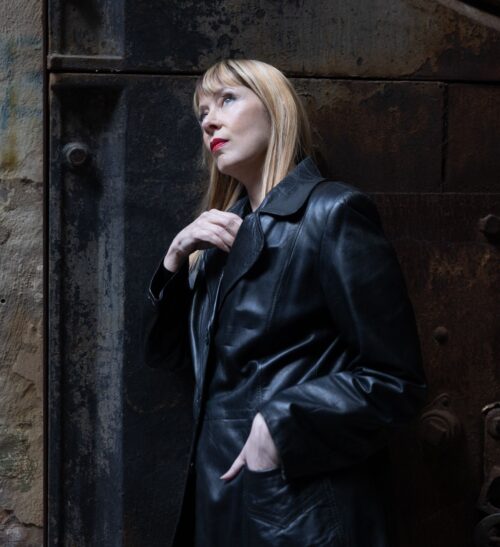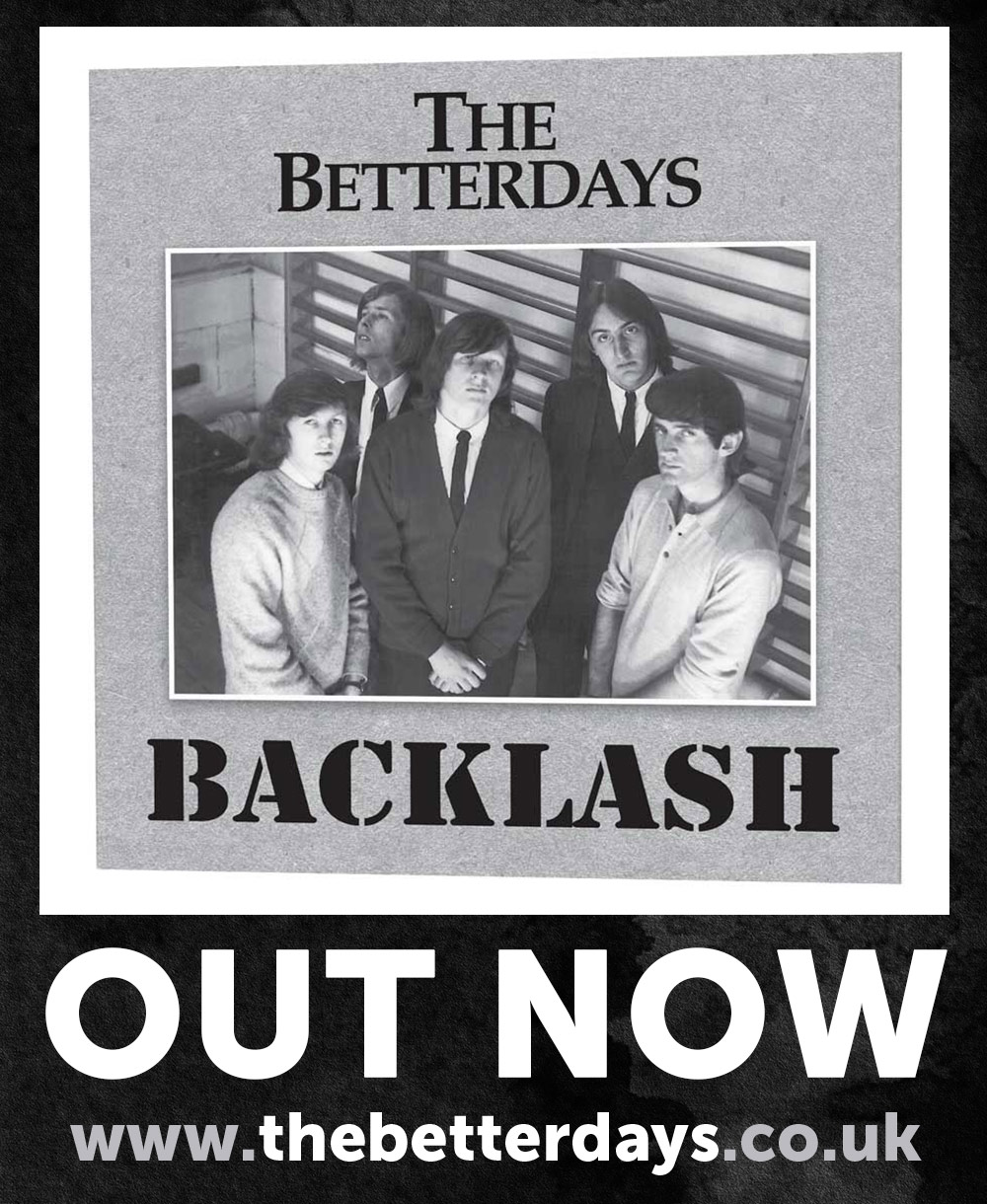Four decades have passed since Suzanne Vega’s fearless approach to storytelling first halted us in our tracks – but, as her new album proves beyond doubt, time and age have been kind to this musical royalty and her song-writing alchemy.
With melodies as pure as snow and lyrics soaked in poignancy, Suzanne caused a whole generation to pause and think about harsh realities like child abuse, at a time when our radios seemed to care only about our dance moves and our tender heartbreaks.
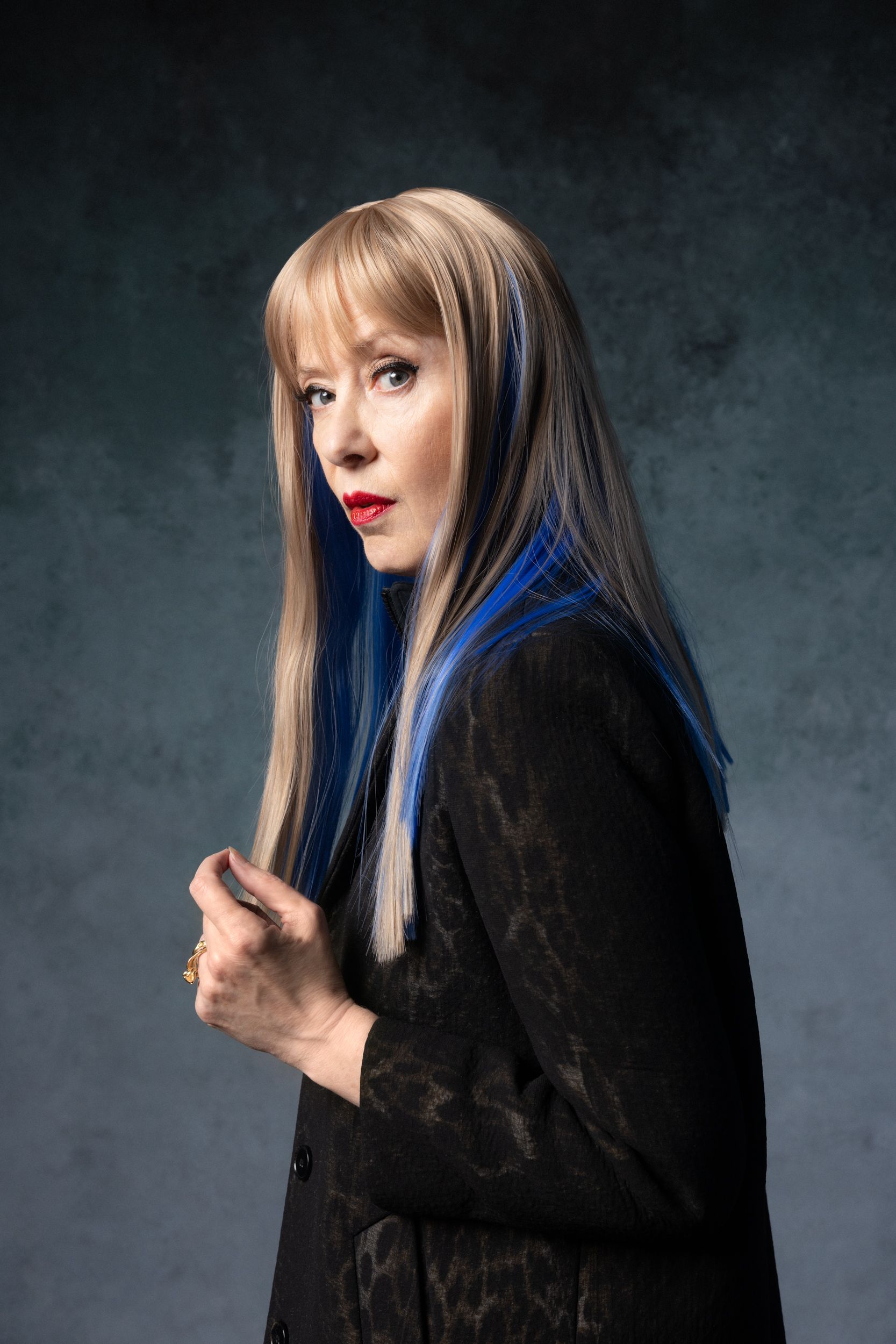
Now we are middle-aged and, on her new album “Flying With Angels”, she is still taking us by the hand to confront the reality of ugliness such as war and politics, comforted somehow by the beauty of her vocals. No wonder Suzanne’s music has stood the test of time; this doyenne is simply timeless and her voice speaks for any generation.
Suzanne Vega burst onto the scene in 1985 with her self-titled debut album, featuring the ethereal hit “Marlene On The Wall” that showcased her mastery as a narrator. This was followed by hit single “Left Of Center”, featured on the soundtrack of the cult classic film “Pretty In Pink”, and the re-release of her a capella “Tom’s Diner’ (a song so universally admired it has since been given a range of genre-defying treatments by artists as diverse as DNA, Georgio Moroder, Fall Out Boy, and Britney Spears – taking Suzanne to new generations and new audiences).
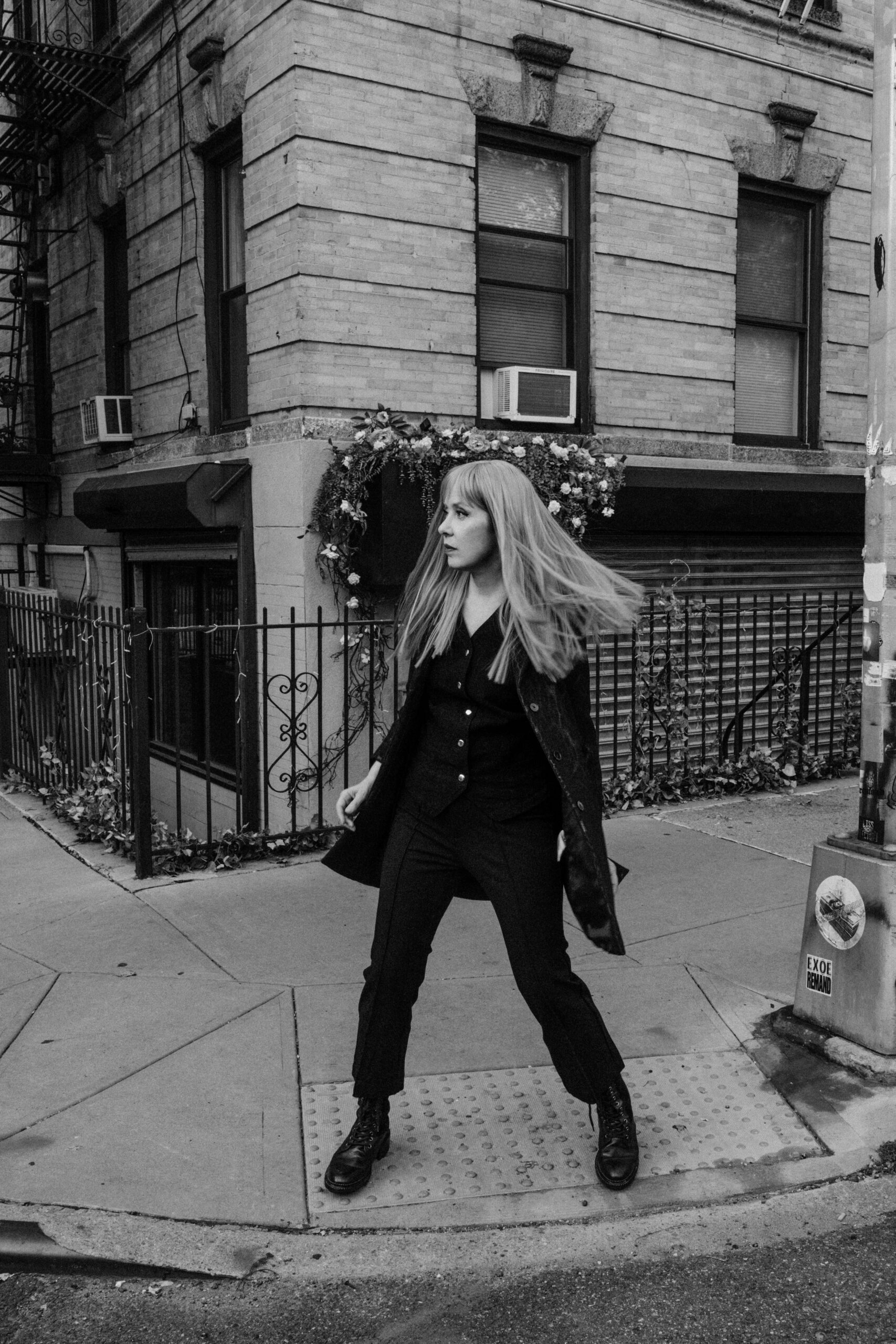
But the song I feel compelled to explore further in our interview is the iconic “Luka”. I know some of the story behind this heart-wrencher, but as I listen intently to Suzanne’s take on it, I realise that Suzanne is not only a woman of huge talent. She is a warrior.
The story of that little boy who lived on the second floor was clear: as he implored us, if we heard some kind of trouble or some kind of fight, we were not to ask him what it was. And that if we did, he would simply tell us he walked into the door…again.
Abuse
We knew Luka was a tale of child abuse. But we did not know until some thirty-five years later that the hurt and hurting child was not really a little boy called Luka. It was a little girl suffering physical and emotional abuse. And that little girl’s name was Suzanne.
“Times have changed and people talk about these things more now than they did before,” Suzanne told me. “But when I wrote Luka back in the ‘80s, I was still afraid. I was still very much in the circle of my family and I did not want to talk about this in public – but I felt the need to express it and so I chose a character to speak through, which protected me all those years.
“Then [in 2021] a historian wanted to do a podcast interview for the Museum of New York. He said: I know you’re Luka and we’re going to start the interview from there. And so I thought: I’ve been caught. He’s found me out. And I decided to accept that challenge.”
This was not the first glimpse of Suzanne’s healthy defiance about her trauma, however – if you know what you’re looking for. Consider the lyrics, just a few years earlier, of “Song of the Stoic”, on the 2014 album “Tales From The Realm Of The Queen Of Pentacles”.
The song’s narrator speaks of his healing and his hopefulness: “I faced my father down, inside the hallway of our home, eighteen years of pain, upon my body to the bone. Demons lived inside of him, they forced him to the act, the layers of the bruises, to my body was the fact. I grew and went into the world, I learned to know its code, of spoken and unspoken, and I learned to love the road.”
Decades after we first wept for Luka, and the silenced children for whom he spoke, is this his (and her) healing and recovery we hoped for? “Yeah, you’ve read that correctly. I mean, I speak through the characters and ‘The Song of the Stoic’ is sort of part two. It’s still a sad song, but it’s how I felt in that moment, ten years ago.”
Age and the passing years have not softened Suzanne’s keen-eye social observation, nor taken the edge off her courage to confront dark shadows. Now 65-years old, she could be forgiven for relaxing into safer subjects, but instead her new album skewers a number of modern issues and preoccupations.
Bloodshed and tragedy are odd bedfellows with gentle melodies, but “Last Train From Mariupol” achieves such juxtaposition. While the world watched the Ukraine invasion in horror, Suzanne transcended the shock and created a message for the world.
“There were many things speaking to me at that time,” she tells me. “The images of people piling into trains and fleeing were already in my head, and then there was the name Mariupol; it’s such a beautiful word and I felt it wanted to be sung. I started to have this image of the last train leaving Mariupol, with little snapshots of the people on it, but there was something missing.
“Then I read a comment in the New York Times, that even God had fled Ukraine because of what he was seeing there – and I thought: that’s what’s been missing. God himself has fled Ukraine, and he’s taking the train. Somehow I saw him shrunken down to human size and leaving along with everybody else, because the evil was so big.”
Free speech
There is no shortage of issues closer to home, of course, and I ask Suzanne about the new single “Speaker’s Corner”. It speaks of the threat to free speech, and I wonder if she sees this as an issue of authority, politics, or perhaps the peer pressure of cancel culture.
“It’s probably a bit of everything you just said. It’s hard to tease out the strands because there are so many things going on at the same time,” she muses. “The idea of free speech is a particularly important one in my household, because my husband [Paul Mills] was for many years a trial lawyer and a First Amendment lawyer. That was his speciality; he represented protestors and that kind of thing.
“So these are discussions we’ve had for decades, but they’re particularly relevant now. Both the left and the right have claimed this issue of the First Amendment as their own. It’s a big mess and it has to get sorted out.”
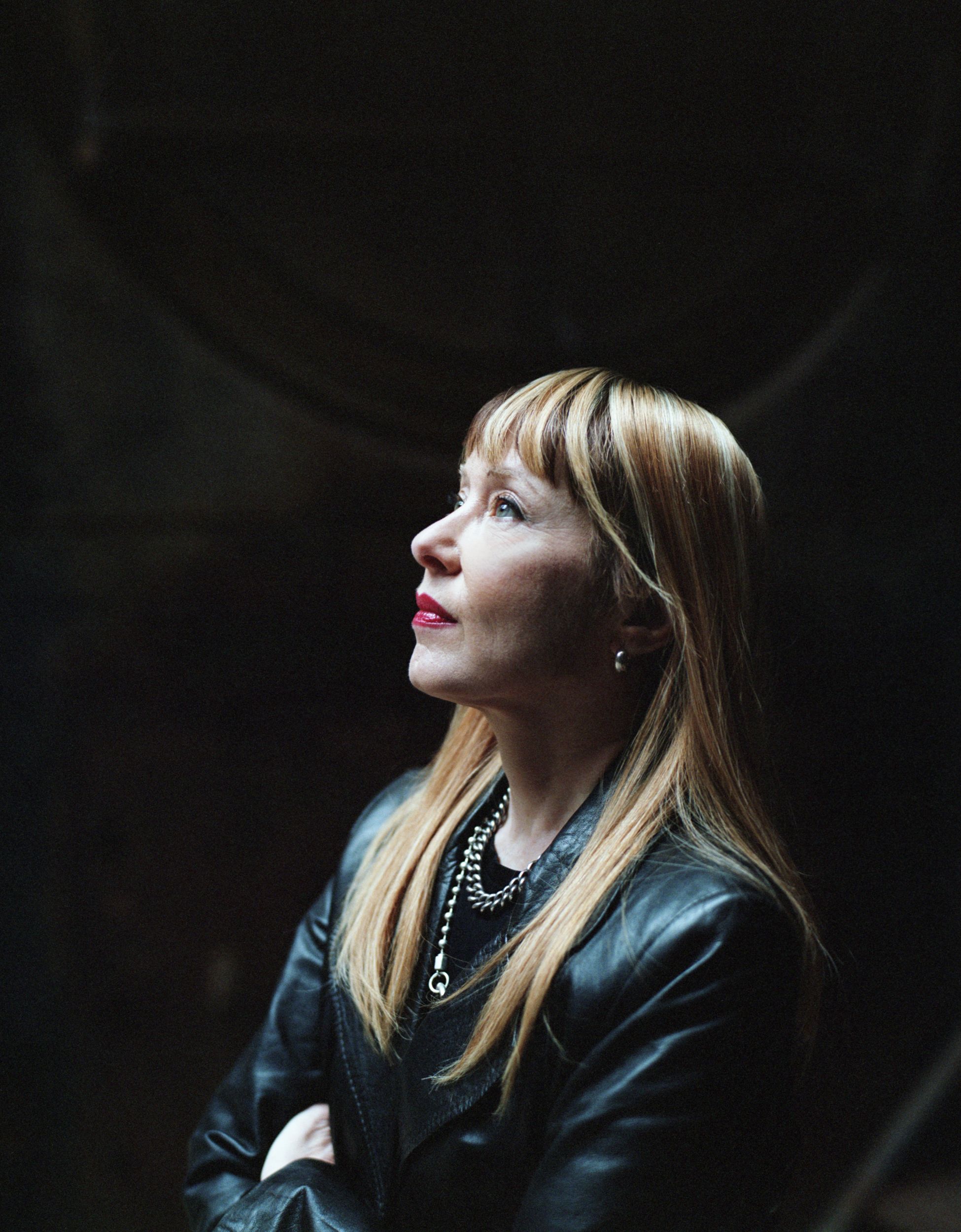
But is there a fine line to walk between liberty and responsibility; what happens when that free speech inadvertently gives free rein to misinformation and post-truth, so easily democratised by the broadcasting platform pretty well everyone has in their pocket now? To my relief, Suzanne has no truck with this.
“I mean, we’re allowed free speech in this country but we’re not allowed to yell “FIRE!” in a crowded area if there isn’t one, you know, because it creates panic and because it’s a lie. So that’s where it’s supposed to end. You’re not supposed to lie or give misinformation. You’re not supposed to make things up and present them as true but, somehow, because of this new medium of social media, that’s gone to hell for a while.
“Someone pointed out recently, and I think this is probably true, that any time we’ve had a new medium – whether radio, television, or the invention of the printing press – there’s been a kind of upheaval in how information is given out, and it has repercussions that last for centuries. So this is something we’re struggling with now; it’s just taken root and gone wild, like a fungus. It’s like a fungus that kind of gets in there and just spreads lies and disinformation.”
Fungus
I can’t help thinking how stimulating and wide-ranging conversation must be on Suzanne’s tour bus, and this turns our conversation to the matter of the people she chooses to have around her on stage and in the studio. After all, you can tell a lot about a musician by the collaborations they choose.
Her primary collaborator, both as a performer and as her musical director, is musician and producer, Gerry Leonard. Gerry worked for many years with David Bowie, and was the recipient of perhaps one of the greatest compliments a musician has ever been paid when, on his 2005 “Reality” tour, Bowie introduced his 1980s’ classic, “Loving The Alien”, and said its new arrangement by Gerry Leonard was “way it should maybe always have been done”.
Suzanne is similarly appreciative of the value Gerry has brought to her catalogue and her live performance for 25 years now, and he will be joining her on her UK tour this autumn. Her recollection of how they came to form such a professional bond is a wonderful example of how even the emergencies you would never wish for can turn out to be a gift…
“I met Gerry when he worked on my ‘Songs In Red And Gray’ album [released in 2001]. One of the first things he said to me, in a very meaningful way, was that he could play my parts on the guitar the way I play them. At the time it didn’t mean that much to me, and I said: well, I’m playing my parts the way I play them, so you can just play your parts, thank you.
“And then I broke my arm just as I had to go on tour…and I thought: where is that guy who can play my parts like I play them. And that’s how we started to tour together, with him playing all my parts and all his parts. We had that sort of loose relationship for about eight years, and then we toured France together as a duo, which was a great success. And since then he has been my musical director, and he’s put bands together for me – right now, for example, we’re playing with a new cellist, Stephanie Winters, who’ll be touring with us.”
Friction
Might such a long-term relationship become complacent though; is there a tension between familiarity versus innovation? “That’s exactly what the tension is, because we know each other very well, and he knows how to get me focused, which I find very valuable. But at the same time, part of our chemistry to shove the other one just a little bit further than they want to be shoved. There is a bit of friction there!
“It might be me throwing ideas at him – like I sent him a blank vocal for the new song ‘Love Thief’ and left him scrambling to put together a bed of music. Or he will challenge me, to get a better vocal or write an intro or a bridge.”

Suzanne’s album “Flying With Angels” [produced by Gerry Leonard] is released by Cooking Vinyl on May 2nd – her first album of all-new songs for more than a decade – and she tours throughout Europe and North America in the autumn – reaching the UK in October, featuring special guest Katherine Priddy, and including a show in London’s iconic Royal Albert Hall. It’s a welcome return to a country that has always felt like a welcoming place to Suzanne.
“I love the UK. It’s one of the first places I travelled to, one of the first places where I was successful, where I felt I was accepted and my music was accepted. I even spent a few months in London, back in 1990/91, staying at Hazlitt’s on Frith Street. I wanted to be somewhere else for months at a time when I felt like writing. But it’s hard to make other plans alongside the tour, because it is a lot of work.”
Balanced life
Meanwhile, Suzanne is enjoying some time at her New York home in Manhattan, where she has taken a break from a mammoth autographing job to speak to me.
“I’m signing a thousand postcards, by hand. So I’m kind of amusing myself, cutting up the job into batches of five and using different colour magic markers! But other than that, I’m just getting myself back in shape after coming off the road. I’m going to the gym, taking walks with my husband, and seeing friends. I’m trying to lead a balanced life.”
Perhaps that balance is Suzanne’s secret elixir. Because it seems to me that, just like her music, she has not aged. Perhaps neither were ever rooted in a time or space to begin with.
SUZANNE VEGA – UK TOUR DATES
October 19—Gateshead—Sage Gateshead (The Glasshouse Int’l Centre for Music)
October 20—Manchester—Bridgewater Hall
October 21—Glasgow—Royal Concert Hall
October 23—Edinburgh—Usher Hall
October 25—Liverpool—Royal Liverpool Philharmonic
October 27—Cambridge—Corn Exchange
October 28—Brighton—Dome
October 30—Bristol—Bristol Beacon
October 31—Birmingham—Symphony Hall
November 1—Stoke—Regent Theatre
November 3—London—Royal Albert Hall



